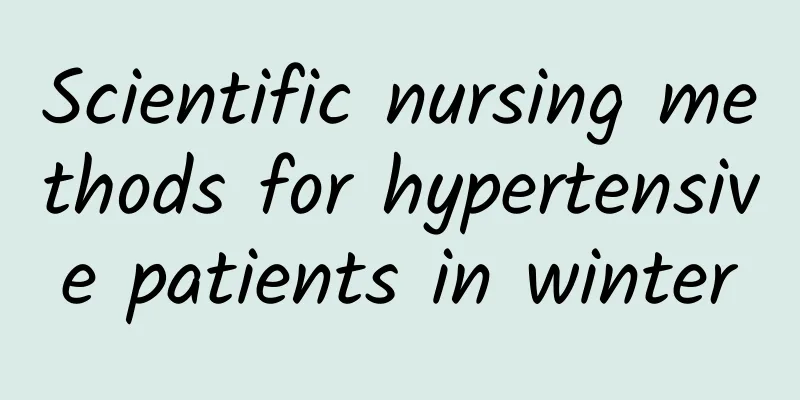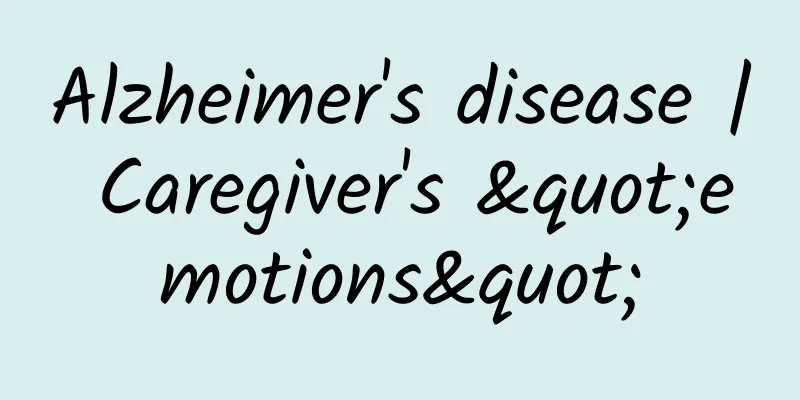Scientific nursing methods for hypertensive patients in winter

|
Hypertension is a chronic disease characterized by increased systemic arterial blood pressure (systolic and/or diastolic blood pressure) (systolic blood pressure ≥ 140 mmHg, diastolic blood pressure ≥ 90 mmHg). It is like a "time bomb" hidden in the body, attacking various organs and systems of the body silently. Long-term hypertension will cause excessive pressure on the heart, leading to the occurrence of heart diseases such as myocardial hypertrophy and coronary heart disease, and even heart failure in severe cases. Under the impact of high blood pressure, the blood vessels in the brain are very likely to rupture, bleed or become blocked, which in turn causes cerebrovascular accidents such as cerebral hemorrhage and cerebral infarction. These diseases often cause serious disability or even life-threatening to patients. As an important excretory organ of the human body, the kidneys are also difficult to escape the "clutches" of hypertension. Long-term hypertension can damage the blood vessels of the kidneys, gradually reduce renal function, and eventually develop into renal failure, requiring dialysis or kidney transplantation to maintain life. In addition, high blood pressure can also affect the blood vessels at the fundus, leading to fundus arteriosclerosis, retinal lesions, etc., which can reduce the patient's vision and seriously affect the quality of life. Winter is a more severe test for patients with hypertension. Cold weather often leads to high blood pressure and increases the risk of cardiovascular and cerebrovascular diseases. Therefore, it is crucial for patients with hypertension to understand the relationship between hypertension and winter and master scientific nursing methods to spend the winter smoothly. 1. Reasons why blood pressure is prone to rise in winter 1. Vasoconstriction: In winter, the temperature is low, and the human body will constrict blood vessels to reduce heat loss. Vasoconstriction will increase peripheral resistance and blood pressure accordingly. Just as the pressure of water will increase when a pipe becomes thinner, the pressure of blood flow will also increase when blood vessels become narrower. 2. Changes in hormone levels: In a cold environment, the body's secretion of hormones such as adrenaline and norepinephrine will increase. These hormones will increase the heart rate and myocardial contractility, thereby increasing blood pressure. At the same time, they will also promote vasoconstriction, further aggravating the rise in blood pressure. 3. Water and sodium retention: In winter, people exercise less and sweat less, which may affect the kidney's sodium and water excretion function, leading to water and sodium retention in the body. As blood volume increases, blood pressure will also rise. 2. The harm of high blood pressure in winter If hypertensive patients do not control their blood pressure well in winter, the risk of multiple complications will increase. As mentioned above, the heart is burdened by the continued effects of high blood pressure, and further fluctuations in blood pressure in winter will increase the likelihood of worsening heart disease. In terms of cerebrovascular diseases, blood vessels that are already fragile due to high blood pressure are more likely to rupture or become blocked under the stimulation of cold, greatly increasing the incidence of serious diseases such as cerebral hemorrhage and cerebral infarction. The kidneys face the dual pressures of blood pressure fluctuations and adjustments to their own functions in winter, which may accelerate the process of renal damage and accelerate the progress towards renal failure. Fundus lesions will also become more serious as blood pressure rises in winter, and the risk of decreased vision increases significantly. 3. Scientific nursing response methods in winter 1. Monitor blood pressure: Regularly measuring blood pressure is an important means to understand blood pressure control. Blood pressure measurement should be increased in winter. It is recommended to measure blood pressure once in the morning and evening every day, and keep records. When measuring blood pressure, you should remain quiet, sit on a chair, and keep your arm at the same level as your heart. If you find that your blood pressure fluctuates greatly or continues to rise, you should seek medical attention in time and adjust your treatment plan. 2. Rational use of drugs: Hypertensive patients should take their drugs on time strictly according to the doctor's instructions, and should not increase or decrease the dosage or stop taking the drugs without authorization. Blood pressure tends to rise in winter, and some patients may need to adjust the drug dosage appropriately under the guidance of a doctor. Some long-acting antihypertensive drugs can steadily control blood pressure for 24 hours and can be used first. At the same time, pay attention to the adverse reactions of the drugs, and inform the doctor in time if you feel uncomfortable. 3. Keep warm: Taking good warm-keeping measures is the key to preventing high blood pressure in winter. Wear enough clothes when going out, including hats, scarves, gloves, thick coats, etc., and focus on protecting the head, neck and limbs. The indoor temperature should be kept within a suitable range, generally recommended to be 18 - 22℃. Air conditioning, heating and other equipment can be used to adjust the room temperature, but pay attention to keeping the indoor air circulating to avoid dryness. 4. Lifestyle Adjustment 1. Moderate exercise: Although the weather is cold in winter, moderate exercise is still necessary for patients with hypertension. You can choose to do some aerobic exercises indoors, such as Tai Chi, yoga, and stepping on the spot. The exercise time can be chosen during relatively high temperatures, such as between 10 am and 3 pm. Exercise for 30-60 minutes each time, 3-5 times a week. The intensity of exercise should be moderate, so that you sweat slightly after exercise and do not feel tired. Warm up before exercise, and keep warm and rest after exercise. 2. Diet adjustment: Winter diet is particularly important for patients with hypertension. The principle of low salt, low fat and low sugar should be followed, and more nutritious foods such as fresh vegetables, fruits, whole grains, fish, poultry, etc. should be eaten. Reduce the intake of sodium salt, and the daily salt intake should not exceed 5 grams. Avoid eating high-salt foods such as pickled foods and processed meats, because too much sodium can increase blood pressure. Control fat intake, reduce the intake of fried foods, animal fats and animal offal to prevent increased blood lipids from increasing the burden on blood vessels. Increase the intake of dietary fiber, such as eating more oats, brown rice, beans, etc., which can help promote intestinal peristalsis and reduce cholesterol absorption. Increase potassium intake appropriately. Potassium can promote the excretion of sodium and help lower blood pressure. Eat more potassium-rich foods such as bananas, potatoes, spinach, oranges, etc. In addition, pay attention to controlling weight and avoid obesity caused by excessive eating, because obesity is one of the important risk factors for hypertension. 3. Quit smoking and limit alcohol consumption: Smoking and excessive drinking can have adverse effects on blood pressure and increase the risk of cardiovascular and cerebrovascular diseases. Hypertensive patients should resolutely quit smoking and limit their alcohol consumption. Men should not drink more than 25 grams of alcohol per day, and women should not drink more than 15 grams. 5. Psychological Adjustment Winter has short sunshine hours and cold weather, which can easily cause depression, anxiety and other negative emotions. Emotional fluctuations can also lead to high blood pressure. Hypertensive patients should pay attention to psychological adjustment and keep a good mood. They can participate in more social activities and communicate with family and friends. They can also relax and relieve stress by listening to music, reading, calligraphy, painting, etc. Hypertensive patients should pay more attention to blood pressure management and their own health care in winter. By understanding the causes and hazards of high blood pressure in winter and taking scientific nursing measures, including monitoring blood pressure, rational medication, keeping warm, adjusting lifestyle and psychological adjustment, etc., blood pressure can be effectively controlled, complications can be reduced, and the cold winter can be spent smoothly. Let us start from every detail, escort our own health, and welcome every warm spring. Statement: This article is a medical-related educational popular science article. It does not involve specific treatment methods or medical behaviors and cannot replace hospital visits. —————————— About the Author: Zhao Jiaojiao, female, head nurse, China Science Popularization Expert, member of the Nursing Branch of the Chinese Stroke Society, member of the Chinese Rural Health Association, member of the Nursing Branch of the Shandong Stroke Society, and member of the Shandong Nursing Society. Graduated from Taishan Medical College with a bachelor's degree in nursing; since 2007, worked in the Affiliated Hospital of Taishan Medical College (later renamed the Second Affiliated Hospital of Shandong First Medical University), successively worked in the emergency department, neurosurgery department, critical care medicine department, and emergency critical care medicine department II. Has been engaged in emergency and critical care nursing research for a long time. |
<<: Eat three meals a week? Beware of cancer caused by this "feeding"
>>: How to avoid depression during perimenopause
Recommend
What causes swelling on the right side of a woman’s lower abdomen?
Sometimes, you may feel bloated after a meal. Thi...
Is lower abdominal pain a symptom of pregnancy?
Many people think that lower abdominal distension...
Will I feel sleepy when I'm pregnant?
After a woman becomes pregnant, her body is affec...
Causes of pain on the right side of the lower abdomen in girls
Dull pain in the right lower abdomen is a common ...
What to do if your chest is low
Low chest position mainly refers to sagging breas...
What should I do if my vaginal discharge is brown and has blood?
Do you know about the health issues of your uteru...
Girls' hair loss is very severe
Hair loss is a very normal phenomenon for us, esp...
【Medical Q&A】How much do you know about T cells?
Author: Wang Juan Children's Hospital Affilia...
A woman dreams of being a third party
A third party is someone who interferes with the ...
Can girls shave their pubic hair?
Can girls shave their pubic hair? Many people hav...
Can I do a vaginal ultrasound during menstruation?
B-ultrasound is a way of physical examination, es...
Are yeast infections in women serious?
There are many reasons that may cause women to su...
The four most common types of pimples on the hands, face, and neck may not be ordinary skin diseases!
When it comes to HPV (human papillomavirus), dise...
What can women eat to nourish their kidneys?
There are many types of kidney deficiency, the mo...
Is a girl pregnant if she has chest pain?
Generally speaking, women's breasts do not ea...









